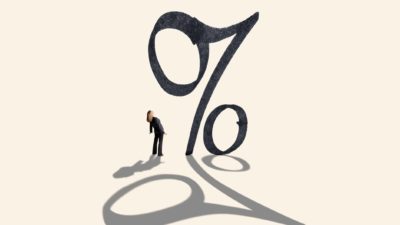Since I started investing, I've been lucky that only a few of my own ASX share investments have gone down heavily. But, the one that did the worst hurt and taught me a lot was Slater & Gordon Limited (ASX: SGH).
Thankfully it was only a small amount of money lost as it was near the start of my investment journey.
There were a number of things that seemed promising about the lawyer business as an investment, before its big acquisition in the United Kingdom. And then everything went wrong.
It was delivering revenue growth, including organic revenue growth, and net profit after tax (NPAT) growth. The dividend was being grown strongly by the board.
One of the most promising elements of the business (at the time) was that it was expanding in the UK with bolt-on acquisitions. Growth of its addressable market and scale seemed compelling.
But then it made a $1.2 billion acquisition of UK business Quindell's professional services division. In time, it had to write off a huge amount of that value, with personal injury laws proposed to be changed in the UK which would impact compensation claims about minor motor accident injuries.
There were a few different things I learned from this experience. The Slater & Gordon share price didn't go to $0, but it was smashed and has remained down heavily.
Cash flow is extremely important
Ensuring that operating businesses have a good cash flow profile is important.
Achieving net profit after tax (NPAT), and growth, is important. But, I think NPAT is not as good an indicator of profitability as cash flow. Revenue and cost recognition can vary in different businesses and industries.
The company said that its normalised net operating cash flow to NPAT ratio was 86.3% in FY14 and just 73.6% in FY15. Ideally, a company's cash flow should fairly closely match (underlying) net profit year to year.
Good cash flow allows the ASX share to organically fund its own growth, rather than issuing lots of new shares or taking on a lot of debt.
Major takeovers can destroy value
I'm not going to go over everything that went wrong with the Quindell acquisition – though there were several elements to it. Slater & Gordon was also unlucky with the timing of the law change.
With this deal, the ASX share was hoping to become the leading personal injury law group in the UK.
There is a real danger that if a business overpays for an acquisition and/or buys the wrong business, it can torch lots of shareholder value.
With individual shareholders not having access to the same due diligence materials as management when considering a deal, investors have to hope that the company is looking at the right things and being prudent.
A huge acquisition that goes bad can be dilutive if funded from new shares. If it's funded by debt and goes bad it can destroy the business.
The attitude and prudence of management are key when it comes to takeovers.
Debt can be very dangerous
Not only does debt have an interest cost, but if there's too much debt, it can end an ASX share if it isn't able to repay that debt.
With interest rates so much higher now, businesses that rely on debt now face a very different landscape.
Being able to afford to pay their interest and repay the principal amount is essential.
Debt can be useful, particularly for the right asset. But, I think it's good to focus on operating companies that have a balance sheet with a net cash position. That means the business has more cash than debt.
That's not usually applicable for a real estate investment trust (REIT), but I think they deserve to be treated a little differently – they do have large asset backing with the property portfolio.
Generally, if debt is part of the picture, I want to see that a potential investment has low (or no) debt, has plenty of cash flow to afford the interest payments, and that the overall level of debt is relatively small compared to the size of the ASX share.









